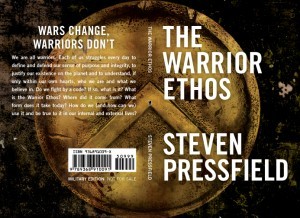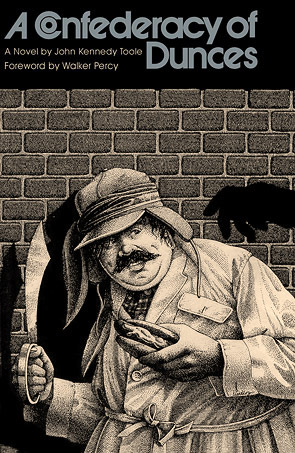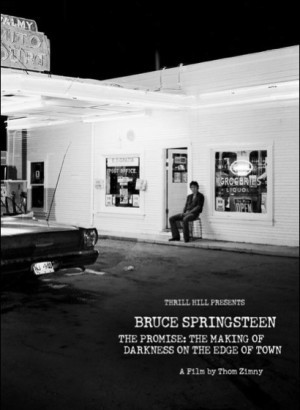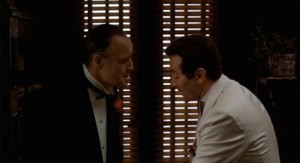Steven Pressfield's Blog, page 75
December 2, 2015
An American Jew for Christmas
Isn’t this a strange question?
I mean we’ve been taught that Artists don’t sell their souls. They keep their inner self-actualization struggles to themselves and let their work speak for them.
Faust sold his soul and that didn’t turn out so well (at least until Goethe made that evergreen Story/Myth his own).
So an artist should avoid putting his/her innermost thoughts up for sale at all cost. Or their blasphemous opening of their internal kimono will lead as Joe Strummer of The Clash so succinctly sang, “straight to Hell.”
Instead, it’s best to write around what you think and feel about your life’s work and why you’ve been compelled to do it. Don’t explicitly express those thoughts and emotions. And God forbid, whatever you do, don’t be so arrogant as to put a retail cover price on them.
Am I right?
This dilemma–to report or not report the internal war–is the seasoned artist’s primary bugaboo.
And it’s the reason why, for the first time, Steve Pressfield is not the author of today’s Writing Wednesdays column.
When we first start out as “creatives,” all we want is to be chosen and embraced by a wide audience. We don’t worry so much about our artistic soul. Hell, we just want to get in the game. We just want Random House to pick us out of the soup and then see how many units our crazy-made-up-fictional-world-we-concocted-for-fun can move.
But as the years and projects go by, our work and the way we think about our work starts to shape shift. It starts to be less than about getting higher on The New York Times Bestseller List and more about “Gee…I wonder why I was compelled to burn five years of my life on that project instead of something else?”
It is from this place of “why” that Steve Pressfield wrote his latest book, An American Jew: A Writer Confronts His Own Exile and Identity.
What began as a “notes to myself” kind of side diary he used to talk himself off of the ledge while in medias res of the incredibly intimidating task of learning a completely new genre (journalism based narrative nonfiction) while writing The Lion’s Gate, turned into something far deeper than he’d imagined.
An American Jew is the story of a writer confronting eternal questions…Who am I? Where do I belong? Why am I compelled to do what I do?
Obviously, this stuff isn’t for everyone. No easy sell either.
You’ve got to be pretty high up on Maslow’s hierarchy of needs to understand the necessity of confronting these unanswerable questions in the first place. And even that small subset of writers/artists beginning to think about these issues won’t necessarily be running to a bookstore to read about how someone else muddled around this ephemeral terrain.
In Marketing-speak, the target audience for this book is a tiny niche (existentially inquisitive artists) of a small niche (writers and artists). A nonstarter project if there every was one. Definitely not something that can be relied upon financially.
And truth be told, Steve wasn’t really so keen about taking his raw stuff, remolding it, and then letting me edit it to shreds, sending it back to him for a almost complete re-write, and then going through his usual two or three rounds of polish…all so that he’d be confronted with trying to shill it to our little tribe of followers. Hence my penning today’s column.
He kept saying…
“Pard, I just don’t know who would care about this? Isn’t this too personal?”
Check out this video where he talks about the book in almost apologetic terms.
Obviously I disagree. I think this book is exactly why Black Irish Books exists.
Here’s why.
An American Jew is a perfect example of what I call “specificity as universality.” The more personally and deeply you drill as a writer…the more reluctant you’ll be to share your terrors and uncertainties…the more likely your work will touch the most unlikely of audiences.
Not to put too fine a point on it, but Steve’s book isn’t really about being an American or a Jew. You needn’t be either to be entertained (and profoundly moved) by it. Just like you didn’t need to be a Spartan to enjoy Gates of Fire or a writer to get something out of The War of Art.
When explaining the power of specificity, I often talk about Eugene O’Neill and his absolute horror of his play Long Day’s Journey Into Night being published (let alone produced), not just within his lifetime, but for twenty-five years after his death! He wrote it in tears and blood and could not imagine anyone really “getting it,” beyond the five tragic members of his immediate family.
I think O’Neill probably felt about Long Day’s in much the same way that Steve thinks of An American Jew…too personal, not for everyone…too raw…too, for lack of a better word, “embarrassing.” But both of these guys were compelled to write these works anyway…even if, especially if, no one cares. I find that fascinating.
And I think you will too.
That’s all well and good, but how do we “sell this thing?” If the book is important enough to publish, it’s important that you sell it too. Let’s not be so precious about our work that we can’t do a little song and dance for it. But it’s got to be the right kind of dance or as Robert DeNiro said playing Jake LaMotta in Raging Bull, “It defeats its own purpose.”
Steve, Callie, Jeff and I went back and forth on this and we decided the best way was not to “sell it.” Instead, we decided to put An American Jew in Black Irish context.
We all see this book as an indispensable addition to our little “writers library.”
So we’ve put together the Black Irish MegaBundle for Writers to keep it company. Our library includes the following:
An American Jew
The Lion’s Gate
The War of Art
Do The Work
Turning Pro
The Authentic Swing
The Story Grid
And The FIRST 500 bundle buyers will get editions (including eBooks with the exception of The Lion’s Gate, and select Black Irish Produced Audios) of these seven books for just $35.00 (a $234.25 value). Click here to take advantage.
Thereafter, we’ll offer the bundle for $50.00 until supplies run out.
And for our friends abroad where shipping charges are unconscionable, we’ll offer the Digital MegaBundle for Writers for six of these titles (we don’t control eBook rights to The Lion’s Gate) for the Crazy Eddie price of $15.00 (a $102.55 value). Click here.
We’ll run the Digital Bundle promotion until Midnight December 31, 2015.
Happy New Year! And thanks for being a part of our little Niche!
November 27, 2015
The 10,000 Reader Rule
Here’s a post from 2014 that has resonated with many of my book marketing friends. A number of them now use it to explain to their clients why and when it’s best to let their book go and move on to their next project…
The sum total of my twenty-two years of experience in book publishing comes down to the number 10,000.
What is a book publisher’s job?
Is it to get a writer on The Today Show?
Is it to buy a full-page four-color advertisement on the back page of The New York Times Arts and Leisure section?
Is it to make sure a book is on the front table of Barnes & Noble for its first two weeks on sale?
Is it to entertain every cockamamie marketing idea an author has…Why don’t we have an ice cream social in Times Square to promote my book about William Howard Taft?
I’ve contemplated all of these tactics over the years as an editor at the major book publishers, an independent book publisher, as an agent and even as an author for a Big Five publisher myself.
What I’ve concluded is that a book publisher’s job is to get 10,000 people to try the book.
Ideally, those readers will give their full attention to at least its first paragraph. If they like what they’ve read, they’ll read the second paragraph…and so on.
That’s it. Get the book to 10,000 people who will sincerely give it a try.
I know, this pronouncement seems glib and just more headline fodder for Buzzfeed, but think about it.
There are three major trade book-reading generations in the United States today.
1. The Baby Boomers (75 million)
2. Generation X (50 million), and
3. Generation Y (75 million).
According to the National Endowment for the Arts survey in 2012, 50% of Americans read at least one book a year for pleasure. So the total market for trade books in general is half of the total populations of Baby Boomers, Generation X and Generation Y…give or take.
That comes to about 100,000,000 people who will read at least one book this year.
10,000 squared.
10,000 times 10,000, a 1:1 ratio.
Call it magical thinking, but for me there’s just something poetic about square roots. The 1 to 1 element mimics a one on one conversation.
We don’t really pay attention unless we have a direct human-to-human exchange of ideas. And I think that’s truer today than ever before. Far fewer of us are susceptible to generic mass media recommendations. When was the last book you bought because it was reviewed in The New York Times?
We don’t really act on anything until a person we trust tells us it’s worthwhile. One to one.
A couple of years ago, Steve and I put this 10,000-reader rule theory to the test when we published The Warrior Ethos. Just to be clear, we never anticipated that The Warrior Ethos would become a backlist bestseller. We published it as a way to increase Steve’s visibility when his Big 5 publisher was publishing his novel The Profession.
We wanted to do all kinds of promotions with The Profession, especially with men and women serving abroad. We wanted to give them free early copies to get word of mouth going. But the publisher had zero interest in giving anything away…eBook, galley or finished hardcover copy.
We even offered to pay for the giveaway, but to no avail. FREE doesn’t play at the big houses. And to do something FREE that might actually work, in their opinion, could set a dangerous precedent.
If we do something like this for Pressfield, then our other authors will want to do it too and before you know it we’ll be giving away as many copies as we sell.
Don’t forget that the big publishers need to recoup their big book advance guarantees as soon as possible so every dollar out the door without any immediately coming back in is a big no-no.
So, instead of crying in our beer (or rather after we cried in our beer), we decided to create something in the vein of The Profession and then give it away ourselves. Our thinking was that someone who reads a book like The Warrior Ethos would probably be interested in Steve’s other work. And if we can pull someone into our little tribe by being generous and thank all of the soldiers who’ve made GATES OF FIRE a major bestseller at the same time, why not?

Initial exposure of “The Warrior Ethos” was 18,000 free copies to Marine Corps and Special Forces units in Iraq, Afghanistan, and at home.
So through Steve and Callie’s connections within the armed forces, we managed to put 18,000 free physical copies into the hands of men and women who would appreciate Steve’s ruminations about the warrior life through history, the meat and potatoes of TWE.
Then for fun, we put it on sale at Amazon and all of the other online places we could think of to see if we could actually sell any after it had already be read for free.
Retail demand for The Warrior Ethos started out slowly. Which was fine by us. Any money that came in just went right to our red ink giving the thing away in the first place.
But then we noticed that month after month the book sold more and more. It went from 40 copies a month to 60 then 80 etc.
Now, three years later, it sells about 1000 copies a month just through word of mouth. We’ve sold over 50,000 copies combined in paperback, eBook and audio. And we’ve done exactly no advertising or publicity for it. It’s not even in bookstores.
Not bad at all.
Now if The Warrior Ethos wasn’t edited properly; if it didn’t have a compelling beginning hook, middle build, and ending payoff, it would have sunk like a stone. The 10,000 copies we gave away would have been thrown in the trash and forgotten if it was a bad book.
Giving away a bad book won’t help anyone.
But the fact is that The Warrior Ethos was written, edited and published very well. Now it’s even on the required reading list of the Marine Corps and is ordered in bulk by individual military units, first responders, and even high school athletic teams.
We learned a great deal from publishing The Warrior Ethos and the biggest takeaway is “if the book is well done, the more people who read it and like it no matter how they come to it, the more people will buy it down the road.”
Exposing 10,000 people who care about the arena of your book gives you a chance that enough of them will actually read it and then recommend it to someone else. That word of mouth will keep the book alive from one year to the next.
So the question that a publisher should ask about a book is not how many copies it might sell in its first year, but rather if the publisher had to give away 10,000 copies, how difficult would that be?
How hard is it to find 10,000 people who when handed a free copy by a friend would actually read it? If you can’t give ‘em away for free, chances are you won’t sell very many.
November 25, 2015
Boiling A Frog
With notable exceptions, just about any story that hopes to produce a powerful impact must build to a climax that strains everyday credulity. An astronaut makes it back safely from Mars, a seventy-year-old male intern saves a hip young female CEO, an outcast high school girl named Carrie immolates her tormenters with her telekinetic powers.

Sean Young as a replicant in “Blade Runner.” Do we buy in or not?
But how do you, the writer, get there?
How do you take your readers to that thermonuclear climax without overtaxing their willing suspension of disbelief?
We talked about one way a few weeks ago in a post called “Truth Truth Truth Fiction.” Here are two others.
The Frog in Boiling Water method.
In this technique, we escalate the pushing of the envelope so gradually and by such subtle increments that the reader either doesn’t realize what’s happening or does realize but, moment by moment, agrees to go along.
Just for fun, let’s make up an example out of thin air …
Chapter One: A nice young family moves into a house in the suburbs of Boston.
“Okay,” says the reader, “I believe that.” (Why not? There’s nothing yet that remotely strains credulity.)
In Chapter Two, every event remains equally plausible—the leaves on the sugar maples turning color, trick-or-treaters making their rounds on Halloween, the mulling of cider, the bobbing for apples. Except for one moment, as the young parents are carving a Jack-o’-lantern, when their four-year-old daughter thinks she hears a tiny voice cry out, “Ouch!” from the pumpkin. Mom and Dad calm their child, dismissing their daughter’s fright as the product of a little girl’s overactive imagination.
The reader thinks, “Okay, I’m not sure where this is going … but I’ll buy in, at least for this chapter.”
From Chapter Three onward, each scene and sequence asks the reader to accept a reality that is getting a teeny bit scarier and a smidgen more Stephen King-esque. The reader is the frog in the pot. With each chapter the temperature of the water rises oh-so-imperceptibly, until …
By the time we hit Chapter Twenty-Two, you the writer can have the earth cracking open and Satan shaking hands with Santa Claus and the reader will accept it.
That’s the Boiling A Frog Method.
The Throw the Reader into the Deep End Without Ceremony and Without Warning method.
From the first sentence or first frame of film, you the writer deliver such an outrageous mind-bending premise that you confront the reader with the choice of buy in or drop out.
“As Gregor Samsa awoke one morning from uneasy dreams he found himself transformed in his bed into a gigantic insect.”
“Early in the 21st Century, THE TYRELL CORPORATION advanced Robot evolution into the NEXUS phase—a being virtually identical to a human—known as a Replicant.”
“A long time ago in a galaxy far, far away … “
This technique forces the reader to make a decision in the first five seconds of exposure to the premise. Is she on the bus or off? Of course the reader wants to be on. That’s why she bought the book or went to the movie.
She says to herself, “Okay, the guy wakes up as a cockroach … I accept that.”
You, the writer, are off to the races.
November 20, 2015
The Next “Next”
 Which Eli Manning are you?
Which Eli Manning are you?A few years ago I heard he was in Palm Beach, the next playboy scuba instructor to rich, bored socialites.
Today I think of him when I see those Direct TV commercials, with the sports figures encouraging the audience to be one version of themselves vs the other.
Whether he’s the bad joke-telling Eli Manning or the smooth and sophistic Eli Manning, I hope he’s found himself.
I hope he’s doing the work.
I hope he’s happy.
I hope he’s being Wyck instead of the next “next.”
November 18, 2015
Steal Without Shame, Part Three
My friend Dave wrote to me a week ago with a problem.

James Patterson, seen here on his MasterClass.com course, maintains a big file of NEW IDEAS
How do we as artists and entrepreneurs transition to the next project?
Dave had just turned in a manuscript. He was trying to get the next idea going. The problem was he didn’t know what that idea was going to be.
For me, the transition is as pernicious a Resistance war as the previous project’s attack towards the finish line. Yes, I know we’re supposed to show up, buckle in, lace up the work boots, and “start the next one tomorrow.” [But] sometimes [we] write and write and it still isn’t feeling right. At the same time, we watch our cash flow dwindle and slowly lose our mojo.
This is what I am fighting right now.
Here’s what I wrote back:
Oddly enough, I was just watching (yesterday) the MasterClass course on writing taught by James Patterson — https://www.masterclass.com — and he was saying how he keeps a GIANT file of ideas and is constantly adding to it. I do that too.
The ideal situation is to have Idea #2 long before you finish Idea #1. My goal is to have a month or two’s work already done on #2 by the time I wrap #1. Then there is no transition. No agony.
This counsel, of course, was a little late to help Dave. So I added this:
I’m a big believer, when you’re stuck, in stealing. I don’t mean outright ripping off or plagiarism, but rather a benign and respectful mass exposure to everything that’s out here, hoping the somebody else’s stuff will trigger an idea that I can run with.
Read read read. Go to movies, concerts, gallery openings. Read new stuff. Read stuff from the ancients. Read magazines, blogs, listen to podcasts. Keeping writing. Keep working on the NEW IDEAS file, but don’t overdo it. Put your brain on “input” instead of “output” until something clicks.
Last, I sent Dave this true story from my days as a junior Mad Man in New York:
In the ad biz, you work in two-man teams—a copywriter and an art director. One is responsible for the words, the other for the pictures.
The first art director I was ever paired with was a gentleman my father’s age, a World War II infantry vet named Zoltan Medvecky. Med was a star, a prize-winning pro. He and I had been given an assignment to do an ad for the international division of Chemical Bank.
I was excited because it was the first time I had ever worked with someone who really knew what he was doing (as opposed to the other junior A.D.s I had till then been paired with.) I was primed to watch and learn.
Med said we should work in his office because it was five times bigger than my cubicle and it had a door.
We came up with a headline pretty quick (actually Med came up with it) and a concept for the visual.
Then Med opened a huge flat file drawer and began poring through magazines and photography books. I asked him what he was doing.
“Stealing.”
I was shocked. “Stealing? You can’t do that!”
Med thumbed through a dozen books and mags till he came to a year-old issue of LIFE. “Ah,” he said. He had stopped at an editorial piece: a page with one-third white space at the bottom, a single black-and-white grainy photo up top, and a one-line caption beneath the photo.
He stole that layout.
“But, Med, isn’t that cheating?”
“This layout in LIFE,” Med said, “is classic reportorial photojournalism. See? A war photo, with the figures underlit and the light source—the late afternoon sun—coming from one side, throwing the other side into dramatic shadow. See how gritty it looks? A real gravitas shot.”
Med showed me how he had tweaked the layout and made it work as an ad. I had to admit, it looked great.
“We’re taking the LIFE photographer’s straight-up look and reconceiving it, borrowing the aspects that possess gravity—and that no one else has used in an ad—to reinforce the impression we want to convey, which implies real-world grit and competence in an overseas setting.”
Med reached across and put his hand on my shoulder.
“Kid, it ain’t stealing if you put a spin on it.”
November 13, 2015
Instinct and Intelligence

What now?
[To read more of Shawn’s stuff, subscribe to www.storygrid.com]
There’s a very instructive moment about the education of a writer in the documentary film, The Promise, a Story nerd nirvana experience about the making of Bruce Springsteen’s fourth album, Darkness on the Edge of Town.
Do you know this story?
Bruce Springsteen was that slight, shy but indomitable guy that those of us who grew up in the industrial heartland of America in the 1960s and 1970s all had at least one of in our school classes.
The Springsteen kid didn’t play football or run for student council or get straight “A”s. But we could all tell that beneath the dirty flannel shirt and primary layer wife-beater t-shirt, lurked the heart of a poet. He’d blurt out some bon mot when no one expected or banged out a rockabilly version of fur elise on the music teacher’s battered upright before class. And those of us jockeying for hierarchical supremacy in the secondary school madding crowd would look at each other, raise an eyebrow and nod respect.
But these kinds of guys all ended up in the same place before Springsteen came around. They’d usually knock up their first girlfriends, get married, and end up at the mill or as assistant manager of the meat counter at Piggly Wiggly…doing their best to make ends meet…getting one day into the next. Whining about wouldas, couldas, and shouldas (I would have been something, could have been something, should have been something if not for…) on bar stools across town.
But Bruce was different…he refused to dive into that dirty and pathetic river.
The beginning hook of the Springsteen narrative is irresistible.
Dad’s a factory worker/bus driver/blue collar guy almost always out of work. Mom is a legal secretary. They live in New Jersey…not Princeton either, like the real New Jersey. Son and father don’t get along so well. When dad stays at home while mom’s pulling in the wages, it ain’t easy on the old manhood. And a man can’t come down on his two girls like he can on his only son.
The inciting incident for the tormented son is aural. The messengers are named Woody, Frank, Elvis, Bob, and Phil. Those five poor boys got out of nowheresville and “made it.” Maybe if the boy does what they did, he can too…
He learns guitar and works out some rudimentary piano, but somehow knows he has to master words to express his vision. Problem is he really doesn’t have a vision, just instinct.
Here’s the moment in the documentary that struck me:
“I go back to most of my writing before “Greetings,” [Springsteen’s first album was Greetings From Asbury Park, N.J.] and it all appears simply terrible to me. You’re still writing a lot of bad words, you’re writing a lot of bad verses, ah so…try and learn how to write well. But your artistic instinct is what you’re going on…your artistic intelligence hasn’t been developed yet. Hopefully that increases and develops over a long period of time. Which gives you an ace to play down the road as you get older. At the time I’m going on artistic instinct and that’s a wide open game…I’m following all kinds of paths…all kinds of roads…and I’m going…that doesn’t feel right…that doesn’t feel right…that doesn’t feel right…that’s how I’m judging.”
Even though he’s a kid, Springsteen’s a writer, so he writes.
Fills notebook after notebook with terrible crap while absorbing the sounds that come from his radio, his mother and father’s phonograph, the seaside beach bars bands, the organ grindings from amusement parks and roller rinks, the clank and rattle from Freehold’s plastics factory etc.
He plays in bands beginning at age sixteen, The Castiles, Earth, Child, Steel Mill, Dr. Zoom and the Sonic Boom, Sundance Blues Band, The Bruce Springsteen Band, and keeps writing.
Progressive complications arise.
For ill: Band members leave, new ones must be broken in, being an opening act for headliners proves soul-crushing…through it all Springsteen keeps following his instincts. Keep writing, keep generating ideas. Think about SOUND PICTURES…
And for Good: The booking agent for Steel Mill, Carl West, tells an up and coming manager named Mike Appel about Springsteen.
Springsteen plays his best song for Appel who asks him if he has anything else. He doesn’t. Come back when you do. Most people never go back after hearing that.
This is 1971 and Springsteen’s twenty-two years old. He returns to Appel in the winter of 1972 with more stuff and Appel signs him as a solo act. A deal that is industry standard, but nevertheless a one-sided contract giving Appel a stranglehold over Springsteen’s material and production…for life. Springsteen’s instinct says he should sign anyway.
Appel convinces legendary CBS Records executive John Hammond to audition Springsteen. Hammond agrees to a three record deal.
Released in January 1973, Springsteen’s first album, Greetings From Asbury Park, NJ in which CBS positions him as “the new Dylan,” bombs. So does his second album released that November, The Wild, The Innocent, and The E-Street Shuffle.
His musical and lyrical instincts are at times impressive, Blinded by the Light is re-recorded by the Manfred Mann Earth Band and it becomes a huge hit record,
Momma always told me not to look into the eyes of the sun
But momma, that’s where the fun is,
but the whole is not greater than the sum of its parts. Greetings and Wild are remarkable works…but they don’t gel and transition from one song to next in cohesive ways.
They don’t tell a global story. They’re story collections, not novels.
Granted, the record album as “novel” had only recently evolved…but any musician worth his salt knew immediately that the Global Story Album was the future. What was that novel album that shattered the form?
I’d argue that while Sergeant Pepper’s Lonely Hearts Club Band was seminal, the concept album as coherent beginning, middle, and end didn’t arrive until Pink Floyd’s The Dark Side of the Moon released in March 1973, right in between Bruce’s debut and his follow-up.
With two failed records behind him, Springsteen is down to his last chance. He’s reached his “all is lost” crisis…one of many more to come…
Still only twenty four years old, the Crisis of the Beginning Hook of his professional life story has arrived.
Will he play it safe and take a lesson from his one hit song and do more of that kind of work? An album full of Blinded by the Light riffs, playing up his “new Dylan” credentials?
Or will he stop, think, and collect himself, and instead of thinking about single songs…think about the whole, the album?
The best bad choice crisis…playing to commercial necessity in order to hang on to a dream (the first choice) or coming up with some sort of overarching “vision” for an entire album built song by song that will in all likelihood be ignored (the second choice).
Of course we could look at this crisis in terms of irreconcilable goods too. Choice one would be good to keep his career alive, but it would destroy the goodness of remaining true to an inner vision. And vice versa.
Now’s a great time to pull out that ace, eh? What’s that ace again? Artistic Intelligence.
Here’s part of that quote in The Promise again:
“…But your artistic instinct is what you’re going on…your artistic intelligence hasn’t been developed yet. Hopefully that increases and develops over a long period of time. Which gives you an ace to play down the road as you get older.”
So what does Springsteen do?
In between live performances to keep the wolf from the doors of his E Street band mates and himself, he comes up with a controlling idea/theme for his last chance album.
He decides intellectually after being led by instinct for the first eight years of his artistic life that the theme of his longform Story album has to be ESCAPE…
Can we leave the lives we are born into? If so, how? What will deliver us from the forces, both external and internal, that keep us from finding our purpose? That convince us to silence ourselves, to give in, give up, quit…
The Climax of Springsteen’s rise is Born to Run, a song/album/novel stuffed to overflowing with America-defining lyrical and musical virtuosity. It’s as much Woody Guthrie, as it is Frank Sinatra, as it is Elvis Presley as it is Bob Dylan…and it’s wrapped up in an updated blue collar Phil Spector-ian Wall of Sound.
Baby this town rips the bones from your back, it’s a death trap, it’s a suicide rap, we got to get out while we’re young.
The message all over that album was clear…if you don’t fight for autonomy chasing your own dream/vision, forces will conspire against you and you’ll become a stranger to yourself, doing someone else’s bidding. It’s no coincidence that after a lover’s betrayal, the album ends with a mournful final warning… Jungleland’s existential howling at the moon.
We all know The Resolution to the beginning hook of Springsteen’s Story.
He made the cover of Time and Newsweek…he became the new new thing,
The Promise is about what happened next…that terrifying moment when you’ve made it over the wall of your own private prison, the hounds are still dogging you, but they’re miles off your trail and you’ve reached that place where you really want to go.
What do you do now?
[To read more of Shawn’s stuff, subscribe to www.storygrid.com]
November 11, 2015
Donald Trump and Your Next Project
One of the questions I get asked a lot is, “How do I decide on my next project? I have so many ideas, I don’t know which one to choose.”

Will he be the Man?
My usual answer is, “Pick the one that scares you the most.”
The reason this works is you’re using your own Resistance to guide you. Since Resistance will always be strongest in the case of the project that’s most important to the evolution of your soul, you will feel the most fear when you contemplate working on that project.
Voila! That’s the one you should choose, just like an actor or actress always picks the role that challenges her the most, the one that will make her stretch the furthest.
But sometimes (I know, I know), we’ve got ten potential projects rattling around inside our skulls and we can’t tell which one we’re most scared of (or which one we like the most.)
What do we do then?
My method is to pick the two or three most promising and start working on all of them.
It’s kinda like the Republican primary race.
Will Trump come out on top? Ben Carson? Marco Rubio? Will Jeb Bush rediscover his mojo at the eleventh hour?
We can’t tell yet.
It’s too early.
But bank on this: with the passage of time, a clear winner will emerge.
Same thing with our three (or more) competing projects.
Yeah, right now we can’t tell if it’s A, B, or C. But a month from now, C’s gonna start feeling a little shopworn.
We’ll narrow the race to A and B.
Eventually the fog will disperse and we’ll pick one (let’s say A).
Six months from then we’ll look back and say, “I can’t believe I ever took B and C seriously. It was so obvious that A was the best!”
So if you’re tearing your hair out trying to choose between competing projects … relax. Take the pressure off yourself. Keep working on all of them, just like the GOP candidates are out there jetting back and forth between Iowa and New Hampshire and South Carolina.
Time will tell.
The weaker will drop out.
The cream will rise to the top.
(Me, I’m voting for Hillary.)
November 6, 2015
The Curious Case of Sidd Finch
Sidd Finch hit the scene in 1985, via a Sports Illustrated exposé written by George Plimpton.
Finch was a rare bird and Plimpton did a helluva a fine job writing about him.
If you missed the article, Finch was believed to have the best arm in baseball ever—as in of all time, not just that year. With a 168 mph fastball and a set-up that outfielder John Christensen likened to “Goofy’s pitching in one of Walt Disney’s cartoon classics,” it was easy to imagine Finch lacked the accuracy to match his speed, but . . . Not the case.
He had speed.
He had accuracy.
He had an extraordinary back-story, too.
Finch’s childhood existed in an orphanage in England, until he was adopted by a world-renowned archaeologist. Little is known of those first few years following his adoption. What we do know is that the archaeologist died in a plane crash in Nepal — and that Finch spent much of the following year wandering through the area near the crash. According to Plimpton, the plane was never found.
Harvard was Finch’s next stop — which proved a short one. He dropped out, but not before leaving a strong impression on his roommate. Seems Finch had a knack for languages and music. Spoke ten languages and his French Horn playing was a thing of beauty.
There’s another gap in Finch’s past and then he pops up in 1985, near a game that had just been played by the Mets’ AAA farm-club. The manager, Bob Schaefer, told Plimpton that when Finch approached him, he thought Finch wanted an autograph. Instead, Finch said something about having learned the “art of the pitch.”
Here’s a direct quote from Schaefer, pulled from Plimpton’s article:
“I am about to hurry on to the hotel when this kid points out a soda bottle on top of a fence post about the same distance home plate is from the pitcher’s rubber. He rears way back, comes around and pops the ball at it. Out there on that fence post the soda bottle explodes. It disintegrates like a rifle bullet hit it—just little specks of vaporized glass in a puff. Beyond the post I could see the ball bouncing across the grass of the park until it stopped about as far away as I can hit a three-wood on a good day.
“I said, very calm, ‘Son, would you mind showing me that again?’
The rest is history.
It’s a remarkable story. It really is.
Young, handsome, likeable kid, void of Ego.
A vagabond without any known bad-public-relations-attracting baggage, who had stumbled into the game. (Or maybe the game stumbled into him?)
A renaissance man, whose deep thoughts ran the line of, “When your mind is empty like a canyon you will know the power of the Way.”
A phenom, being courted by a team that hadn’t won the World Series since 1969.
Also, pure fiction, of the Paul Bunyan variety.
The article appeared on April Fool’s Day. Quite a few people were in on the joke, with the feature including images of Finch traveling the world, Mets players, Finch’s roommate, and even the landlady, Mrs. Roy Butterfield.
Quite a few more people were heartbroken when they tuned into reality.
It was a War of the Worlds moment, with readers believing Plimpton just as listeners had believed Orson Welles decades before.
As War of the Worlds interrupted breaking news, which is how listeners of the time were trained to expect an emergency broadcast, Sidd Finch appeared in Sports Illustrated, in a format — and by a writer — which they were trained to believe authenticated the story.
In both cases, non-believers existed, but why so many believers?
For War of the Worlds, it was the first time, presented by media that was supposed to be trusted.
For Sidd Finch, people wanted to believe in the Mets’ salvation. They wanted the story to be true.
Decades have past between both and people are still believing media outlets when they should be questioning—and they’re still believing the unbelievable because they hope there’s a grain of truth, that someone could come out of nowhere and end up becoming the basket in which a major league club is placing all its eggs.
Every now and then it happens, but mostly… The Sidd Finches of this world are just what the seventh definition in Plimpton’s dictionary defined “finch” as: “a small lie.” They’re fun to believe in, but the real deals come with decades of work. The rest of them? Question. Question. Question. Just because a journalist says it, doesn’t make it so.
For Plimpton, though, it was solid writing, showing his knowledge of the game and of story — of those elements that had to be included for the story to be believed. While his character retired April 2, 1985, his writing has endured.
November 4, 2015
Novels Are Dangerous
Writing a novel can test your sanity.
Consider what you’re letting yourself in for. A two- to three-year slog with no external validation or reinforcement, no paycheck, no day-to-day structure except that which you impose yourself. Support from friends and family? Dubious. Future rewards? Highly uncertain. And we’re not even talking about the work.

Walter Pidgeon in “Forbidden Planet”
Will your Significant Other understand? The best advice to the mate of a novelist (or to anyone with aspirations in this direction) is to sit down, pour yourself a stiff drink, and make sure in your heart that this is a starship you’re ready to blast off in.
No one, trust me, can write a novel and not become completely immersed in it. You have to or you can’t keep going.
Think about how crazy that is.
You, the writer, are having conversations all day (and all night) with personalities who don’t exist. Those with whom you spend every working hour, and about whom you care most passionately, possess no corporeal reality. You’re like Walter Pidgeon dueling the Monsters from the Id in Forbidden Planet (Netflix it if you haven’t seen it). You have entered a realm whose depths and dimensions are known to you alone. You can try to explain this to your spouse, yeah, but that glassy, semi-panicky look in his/her eyes is real. He/she has just realized that they’re linked for life with a person they do not know.
One of the weirdest things in the world is to look in the mirror (I mean really look) when you’re in the throes of writing a novel.
You don’t even recognize yourself.
You are dealing with the Muse now. You’re on her turf. She owns you.
It’s a rush. It’s the rush. But it also can scare the hell out of you.
You have ceded your psychic autonomy to forces based in a different dimension of reality. This is the Foreign Legion, baby, and I don’t mean France.
I’m not kidding when I say that your closest, and possibly only confidant has now become your cat, your dog, your goldfish. They don’t get you either, but at least they’re not the mother or father of your children.
Why do so many novelists become drunks or addicts? Why do so many take the gas pipe?
You’re playing with dynamite when you type
CHAPTER ONE.
October 30, 2015
How to Get Good Advice
[To read more of Shawn’s stuff, subscribe to www.storygrid.com]
When seeking editorial counsel:

Don’t be like Johnny Fontane
Don’t ask a writer or editor you do not respect to give you constructive criticism.
Find a writer or editor you respect and ask just one time for his/her undivided attention. (unless you are compensating them). You cannot go back to the well again and again and again…unless you stupidly keep paying them for advice you never take…
Spend less time with writers and editors you do not respect.
Spend more time with writers and editors you do respect.
When a writer or editor you respect takes the time to consider your work and offers advice…Thank them and act on it. Even if you think the advice is stupid… Chances are, if you respect them, the advice they’re offering is just the thing you need to take your work to the next level.
Whatever you do, don’t respond like this:
Thanks for these notes, but I’m going for something bigger than just “genre” fiction.
My ________ (best friend, husband, guru, bridge partner) didn’t think my rape scene was gratuitous…so I’m confused about why you had such a hard time with it.
I’m too close to the work now to consider the kinds of changes you’re suggesting. I mean, I’d probably have to re-write the whole thing!
I read an interview with Jean Cocteau in the Paris Review that contradicts your insistence that readers want a beginning, middle and end. As I recall, he said something like this “There is always the temptation to fix it up, to improve it, to remove its poison, blunt its sting.” I guess I’m like Cocteau. I just can’t compromise my vision to serve the necessities of the marketplace.
I don’t work that way.
[To read more of Shawn’s stuff, subscribe to www.storygrid.com]




